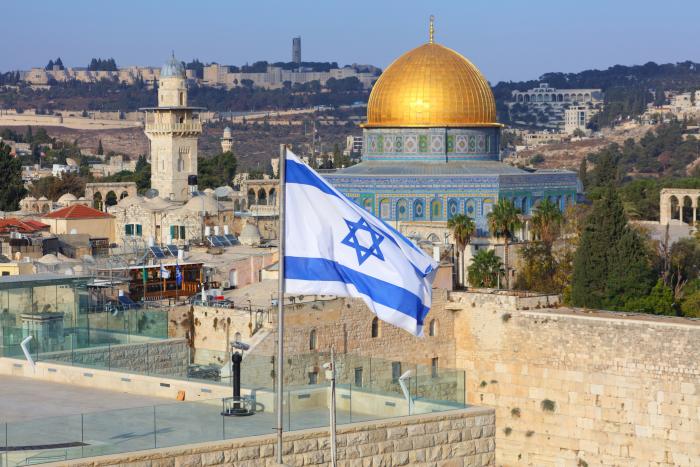Survey: Israeli Views on Hamas Attack, War in Gaza Split Along Religious Lines
Jewish and Muslim Israelis are divided in their opinions of the country’s approach to the war in Gaza, as well as in their views of what the future of Israel and Palestine should look like, according to the recently released results of a University of Maryland survey.
Led by sociology Professor Mansoor Moaddel, the survey fielded Dec. 7-25 found that more than three-fourths of Jewish Israelis agreed or strongly agreed that “The terrorist attack on October 7 was the second Holocaust.” In comparison, just under 45% of Israeli Muslim Arabs—who account for about one-fifth of Israel’s population—said the same.
Even greater gaps separated the two groups’ opinions about appropriate responses to Hamas’ attack: Roughly 7 in 10 Jewish respondents said that they strongly agreed or agreed that “Israel should occupy all of the Gaza Strip,” but that belief was shared by only 1 in 10 Muslim respondents.
“Muslim Israelis are not necessarily pro-Hamas—in fact, 62% of Jewish respondents and almost 64% of Muslim respondents said they believed that ‘Hamas is as much a threat to Israeli Arabs as it is to Israeli Jews’—but given their background in terms of ethnicity and religion, they have a strong sympathy for Palestinians,” Moaddel said.
Eight in 10 Muslim respondents said that “Israel would be a better place if there was a Palestinian state side by side with Israel,” a statement that only 13% of Jewish respondents agreed with.
The researchers did manage to find another area of almost-common ground, however: 62% of Jewish respondents said they agreed or strongly agreed that “The current security crisis is a threat to the existence of the state of Israel,” as did 61% of Muslim respondents.
The survey of 2,445 Jewish and 1,005 Muslim Israelis was funded by a $200,000 grant from the National Science Foundation and carried out by the Geocartography Knowledge Group in Tel Aviv, Israel. It was born out of ongoing research by Moaddel, who has spent the last 20 years studying Middle Eastern populations’ belief systems, religious fundamentalism and liberal values in particular.
“We were about to enter the field when Oct. 7th occurred, so we went back to the drawing board,” Moaddel said.
His fellow researchers include Bar Ilan University Assistant Professor Julia Elad-Strenger, Professor Samer Halaby of the Academic College of Tel Aviv Yaffo, and Professor Shlomo Fischer, of Hebrew University and the Jewish People Policy Institute.
Photo is provided by iStock
Published on Wed, Feb 28, 2024 - 1:15PM




